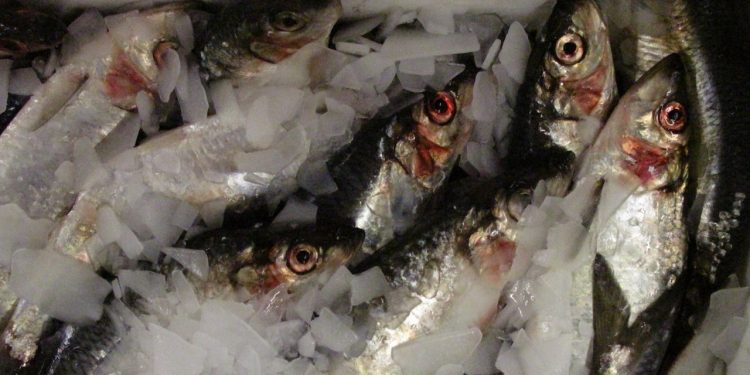The North Atlantic Pelagic Advocacy Group (NAPA), speaking as a collective of businesses with a major share of Northeast Atlantic pelagic purchasing, has aimed an open letter to Ministers, challenging them to address shortfalls in management of North-east Atlantic pelagic stocks.
‘Just a reminder from the global marketplace for seafood: we want to see sustainable fishing in the North-east Atlantic. NAPA is directly invested in the responsible, science-driven management of Northeast Atlantic mackerel, Atlanto-scandian herring and North East Atlantic blue whiting. Setting catch levels above the established scientific advice for these stocks, year on year, is an unacceptable threat to shared-stock fisheries,’ NAPA states in its letter.
‘The barriers are political – so we thought we’d write to a politician.’
‘The solutions are laid-out in long-term management strategies, based on robust science and designed to ensure responsible, ethical, sustainable seafood for consumers. We want to see Coastal States taking a leadership position and committing to science-based management.’
NAPA is pointing its finger squarely at the Ministers responsible for fisheries in the North-east Atlantic region, telling them that they each have a duty to direct their national delegate at the upcoming 2021 Coastal States and NEAFC meetings to follow the ICES advice, implement Management Plans and resolve allocation issues.
‘Collaborative, multi‐annual management should be the default approach when it comes to shared-stock fisheries. All stakeholders benefit from agreeing to and working toward long‐term sustainable management objectives. That includes responsible quota sharing arrangements and sustainable harvest strategies, a regular review process, and any necessary steps to transition to a new and robust system of long-term fisheries management. In short: use the information at hand to put systems in place to protect i) the environment ii) this valuable resource and iii) business confidence and security,’ NAPA states.
‘Contracting parties should prioritise resolving the allocation issues around these stocks and re-establish the NEAFC Working Group on Allocation as a first step. In addition, a dispute resolution mechanism should be employed at both the Coastal States meeting and NEAFC.’
As a body of more than 40 retailers, food-service companies, and suppliers from around the world, NAPA has considerable muscle and is determined to get the point across that the current situation in the Northeast Atlantic is unsustainable.
‘The inability of Coastal States to follow the scientific advice and reach agreement on quotas has thus far resulted in the loss of Marine Stewardship Council (MSC) certification for these stocks. What’s more, your inaction is driving the supply chain to re-think purchasing decisions,’ NAPA states in its open letter.
‘If these fisheries continue to fail to deliver the requirements of our sourcing policy and cannot agree on quota allocation and the implementation of an effective dispute mechanism, we will re-evaluate our sourcing choices with a view to only select Coastal States championing sustainability that actively support NAPA,’ commented a spokesperson for NAPA member company Labeyrie-Fine-Foods, and their words are echoed by other major seafood buyers.
‘We are calling on the North East Atlantic Fisheries Commission Coastal States to agree quotas in line with scientific advice and implement a long-term science-based management plan for blue whiting. … Should progress falter, or the FIP fail, we will continue our stand to not source fishmeal containing uncertified blue whiting,’ said a Skretting spokesperson.
‘In the event of a failure of the blue whiting FIP, Aquascot will review our sourcing policy for feed used by our Scottish salmon farming suppliers and will aim to source this product only from Coastal States that are reviewing their fishery management plans in line with NAPA’s recommendations’ added a representative of Aquascot.
‘Fisheries is a complex world. This decision is simple. As we approach the Coastal States meeting in October, we will be watching,’ NAPA’s spokesperson said.










